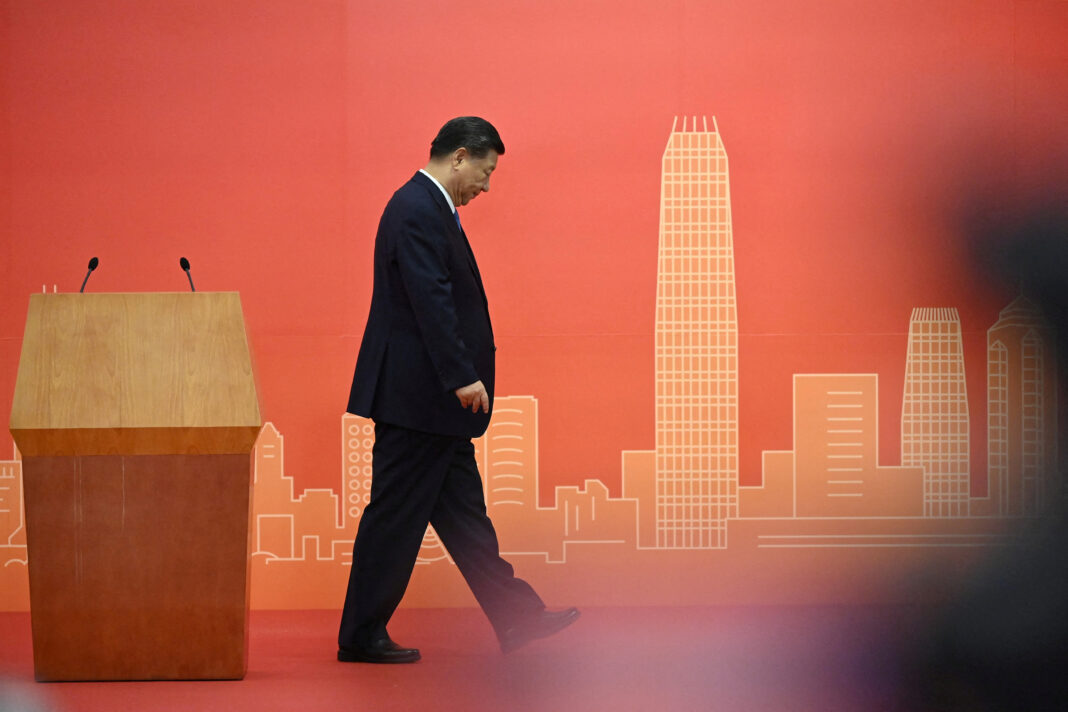China has officially sent invitations to prominent European leaders. The South China Morning Post confirms the source and recalls; however, that invitations still have to be accepted by them, making the following even more intriguing and appealing
The ball is now in the court of the Italian Prime Minister Mario Draghi, the French President Emmanuel Macron, the German Chancellor Olaf Scholz, and the Spanish Prime Minister Pedro Sánchez, according to a source close to the Chinese government.
It is thought that the most auspicious date is in November, just after the XX National Congress of the Chinese Communist Party. This event will crown President Xi Jinping and establish his third term, giving him a clearer governmental vision of how to deal with European leaders the following month. However, it is now up to European leaders to decide whether to reach Xi Jinping in Beijing, and it is not said that the invitation can be delegated to third parties.
For example, the Italian political situation is currently very delicate, even if Xi Jinping’s message is clear: my invitation is to Mario Draghi. If Italy wants to sit down with the other European leaders, it will have to do so with him.
Moreover, the remaining European framework is no rosier. President Macron, like Xi, is facing problems of a domestic nature between the growth of a “rampant anti-Semitism” and the existence of a national Parliament of which he does not have a majority. Chancellor Scholz is constantly being crushed by the enormous weight that Angela Merkel’s shadow lies on him. Being weak internationally, he has been found embroiled in political scandals, such as the one involving nine women at an SPD party in Berlin.
The only one who could be saved is Pedro Sánchez, who, however, does not enjoy the same diplomatic depth as the other three mentioned above.
It is indisputable that national events are the balancing act of the type of response they will give to President Xi Jinping, although I don’t know how many chances there will be in the future.
What about the European Union?
President Xi Jinping has called the most influential leaders of the European concert, who are currently at the forefront of resolving the Russian-Ukrainian conflict and combating climate change. But among these four calls, the one addressed to the European Union is not in the mailbox. This is a decisive action that has not been ignored by the world’s leaders. A consequence almost inevitable after the prolonged diplomatic inaction undertaken by the European Union in terms of European security and member states’ priorities.
Moreover, it is not even a surprise: in recent months, at the dawn of the conflict, President Vladimir Putin already bypassed Brussels, negotiating and discussing directly with Joe Biden on the dynamics of the ongoing war between Russia and Ukraine.
This European ineptitude that could be swept away by rising as a credible mediator between Moscow and Kyiv had grown, embarrassing the heads of state, who seized the opportunity, like Macron when called Putin on the phone. A commendable gesture, which, however, should not be covered by a single man, but by the European Union.
Unfortunately, Paris was forced to move in this way because of Turkey’s unwieldy desire to preserve its regional power and become part of the European negotiating table, proposing Ankara as a place for dialogue and reconciliation.
Although Turkey still sells arms to Ukraine, it has succeeded in its goal of making the Turkish capital more influential and global. And this brings successful outcomes, such as the partial convergence of four of the six main issues, in particular the abandonment of Ukrainian membership in NATO and the recognition of Russian as the state’s second official language, and significant progresses on the grain blockade in Ukraine.
Successes that the European Union could have accomplished, but the fact that it cannot resolve international crises in its garden has become the European axiom over the decades.
The opportunity that Xi Jinping is giving to member states is an indirect opportunity that is also given to the European Union: its leading promoters have not met the Chinese President since 2020, and after those diplomatic frictions and the Covid19 pandemic that have driven China away from the Western sphere, this is a hand extended towards a European Union that EU must find the strength, the confidence and the firmness to grasp it.
It is thought that the most auspicious date is in November, just after the XX National Congress of the Chinese Communist Party. This event will crown President Xi Jinping and establish his third term, giving him a clearer governmental vision of how to deal with European leaders the following month. However, it is now up to European leaders to decide whether to reach Xi Jinping in Beijing, and it is not said that the invitation can be delegated to third parties.




